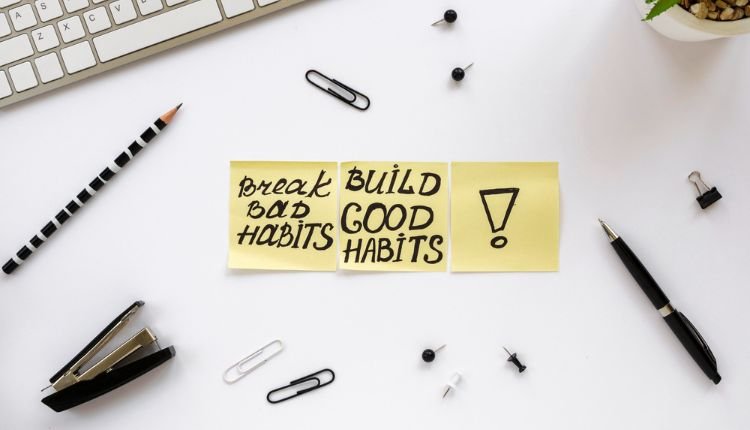7 Habits of Successful Teens That Transform Their Lives
Did you know that teenagers who cultivate positive habits early in life are more likely to achieve long-term success? Research has shown that forming the right habits during adolescence not only boosts academic performance but also shapes future careers and personal growth.
Habits are the building blocks of our daily routines, influencing how we think, act, and achieve our goals. For teens, developing habits like time management, goal setting, and resilience can set the foundation for a fulfilling and successful life. These behaviors, practiced consistently, have the power to transform lives, no matter the challenges faced along the way.
As you read on, reflect on which habits resonate with your current lifestyle and identify areas for improvement. By the end of this guide, you’ll discover actionable steps to develop the 7 Habits of Successful Teens that can help unlock your full potential.
Why Habits Shape Success in Teenagers
Habits are the silent architects of our lives, forming the foundation of a teenager’s character, productivity, and mindset. They shape how teens respond to challenges, manage time, and pursue their ambitions. Unlike fleeting motivation, habits are consistent behaviors that, when practiced daily, become second nature and drive long-term success.
Take Serena Williams, for example. Her extraordinary tennis career didn’t stem from talent alone but from her rigorous practice routines, unwavering discipline, and commitment to growth. These habits, repeated over years, became the backbone of her success. Similarly, Elon Musk credits his reading habit and relentless focus on solving problems as key factors in his achievements.
Psychological research, such as Charles Duhigg’s The Power of Habit, explains how habits form through a simple loop: cue, routine, and reward. For teenagers, building constructive habits—like prioritizing tasks or adopting a growth mindset—can lead to transformational results.
As thought leader Aristotle famously said, “We are what we repeatedly do. Excellence, then, is not an act, but a habit.” This underscores the importance of nurturing good habits early, as they pave the way for a lifetime of accomplishments and personal fulfillment.
Ready to dive into the specific habits that define successful teens? Let’s explore them next.
The 7 Habits of Successful Teens
1. Goal Setting and Prioritization
Setting goals gives teens a clear direction and purpose, helping them channel their energy into meaningful activities. The SMART goal framework—Specific, Measurable, Achievable, Relevant, and Time-bound—provides a roadmap for creating achievable objectives. For example, a student aiming to improve math grades might set a SMART goal: “Raise my math test scores by 10% over the next three months by practicing 30 minutes daily.”
Breaking larger goals into smaller, manageable tasks is equally essential. Teens can use weekly planners or digital apps to track their progress and adjust their strategies. Consider the story of Moziah Bridges, a teenager who turned his passion for fashion into a successful bow tie business, Mo’s Bows, by setting clear goals and steadily working toward them.
Goal setting not only boosts motivation but also teaches responsibility. When teens prioritize their aspirations, they develop focus, confidence, and the resilience needed to navigate challenges.
2. Time Management

Effective time management is a cornerstone of teenage success. Learning how to allocate time wisely can reduce stress, improve academic performance, and leave room for personal growth. Tools like digital calendars, to-do lists, and the Pomodoro Technique are invaluable for staying organized and focused.
A study published in Frontiers in Psychology revealed that students with strong time management skills perform better academically and report higher satisfaction with their studies. Take Emma Yang, a teen who created the Timeless app to help Alzheimer’s patients. By mastering time management, she balanced academics, hobbies, and her tech innovation journey seamlessly.
To get started, teens should prioritize tasks by importance and urgency, dedicating focused blocks of time for study, relaxation, and hobbies. Developing this habit early equips them with a skill set that will benefit them for life.
3. Practicing Self-Discipline
Self-discipline is the ability to stay consistent, even when motivation wanes. It’s a critical trait for teenagers navigating distractions like social media, peer pressure, and procrastination. The famous Stanford Marshmallow Experiment demonstrated that children who could delay gratification tended to achieve greater success in adulthood.
Teens can cultivate self-discipline through small, intentional steps. For example, setting specific screen time limits, practicing mindfulness, or working in distraction-free environments can significantly improve focus. Olympic swimmer Michael Phelps credited his self-discipline—waking up early for years of training—as a key factor in his record-breaking career.
By embracing delayed gratification and self-control, teens build the inner strength necessary to achieve their long-term goals and make wise choices.
4. Building Positive Relationships
No one succeeds alone. Positive relationships with family, friends, mentors, and teachers provide emotional support, motivation, and valuable guidance. For teens, these connections help build confidence and resilience during tough times.
Consider Malala Yousafzai, who credits her father’s encouragement and the global support of her peers for her activism and educational achievements. Teens can strengthen their relationships by practicing active listening, showing empathy, and seeking out individuals who inspire and uplift them.
Tips for fostering positive relationships include joining clubs, participating in group activities, and maintaining open communication with trusted adults. A supportive network is a safety net that empowers teens to take risks, grow, and thrive.
5. Lifelong Learning and Curiosity
In a world that’s constantly evolving, curiosity and a passion for learning are invaluable traits. Teens who embrace lifelong learning stay adaptable, innovative, and ahead of the curve. This goes beyond academics—it includes exploring interests, gaining new skills, and staying informed.
For example, Jack Andraka, a teenager who invented a low-cost cancer detection test, credits his curiosity and self-education through online resources as pivotal to his breakthrough. Platforms like Khan Academy, Coursera, and YouTube offer endless opportunities for teens to explore their passions.
Encouraging teens to ask questions, seek out mentors, and pursue extracurricular interests fosters creativity and growth. With curiosity as a habit, they can turn their passions into achievements.
6. Embracing Resilience and Adaptability
Life is full of setbacks, but resilience and adaptability empower teens to bounce back stronger. These habits teach them to handle failures, cope with changes, and maintain a positive outlook despite challenges.
Bethany Hamilton, a teen surfer who lost her arm in a shark attack, exemplifies resilience. Instead of giving up, she adapted her techniques and continued competing at a professional level. Teens can develop resilience by journaling to process emotions, reframing negative thoughts, and seeking solutions instead of dwelling on problems.
By practicing resilience, teens can approach challenges with confidence and adaptability, turning obstacles into opportunities for growth.
7. Giving Back to the Community
Volunteering and helping others not only benefit the community but also shape a teen’s character. Acts of service teach empathy, leadership, and a sense of purpose, contributing to personal fulfillment.
For instance, Haile Thomas, a teen who founded a nonprofit promoting healthy eating, used her passion to make a difference in the lives of others. Research from the Journal of Happiness Studies shows that volunteering increases happiness and reduces stress.
Encourage teens to participate in community projects, mentor younger peers, or start their own initiatives. Giving back fosters gratitude and a deeper connection to the world, laying the groundwork for a successful and impactful life.
How to Develop These Habits

Developing successful habits as a teenager takes time, patience, and a step-by-step approach. Here’s how to get started:
1. Start Small and Focused
- Pick one habit at a time to avoid feeling overwhelmed.
- For example, begin with setting a daily to-do list if time management is your goal.
2. Create a Routine
- Incorporate the habit into your daily schedule to make it a natural part of your life.
- Example: Dedicate 15 minutes each morning to review your goals and priorities.
3. Track Progress
- Use apps like Habitica, Todoist, or Streaks to monitor consistency.
- Visualizing progress keeps you motivated and accountable.
4. Seek Support and Accountability
- Partner with a mentor, friend, or family member who can encourage and guide you.
- Example: Join a study group or community aligned with your goals.
5. Stay Consistent
- Remember, habits take time to form. According to research, it takes an average of 66 days to develop a new habit (European Journal of Social Psychology).
- Be patient and forgiving if you slip up—progress is more important than perfection.
By integrating these steps gradually, teens can adopt transformative habits that set the foundation for lifelong success
Common Challenges and How to Overcome Them
Even with the best intentions, teens often face obstacles when developing successful habits. Here are common challenges and practical solutions:
1. Peer Pressure
Challenge: Friends or peers may discourage positive habits or promote unhealthy behaviors.
Solution:
- Surround yourself with supportive individuals who share your goals.
- Politely set boundaries and explain the importance of your choices.
2. Lack of Motivation
Challenge: Staying consistent can feel tough, especially without immediate results.
Solution:
- Break goals into smaller, achievable steps to celebrate quick wins.
- Create a vision board or daily reminders to stay inspired.
3. Distractions
Challenge: Social media, video games, and other distractions can derail focus.
Solution:
- Designate specific times for work and play using tools like the Pomodoro Timer.
- Create a clutter-free, inspiring workspace that fosters concentration.
By identifying these challenges and implementing tailored strategies, teens can stay on track and build habits that last a lifetime.
Final Thoughts
The seven habits of successful teens can truly transform lives by shaping character, enhancing productivity, and fostering a positive mindset. These habits aren’t just tools for achieving success in school or extracurriculars—they’re foundations for lifelong growth and fulfillment.
Start small. Focus on building one habit at a time, whether it’s improving time management, practicing self-discipline, or setting clear goals. Consistency is key, and gradual progress is far more sustainable than attempting to overhaul everything at once.
Take a moment today to reflect on your current habits. Which of the seven habits resonates with you the most? Pick one and commit to practicing it.
We’d love to hear about your journey! Share your progress in the comments or discuss it with friends to inspire and motivate each other.
FAQs
How can teens implement these habits in daily life?
Teens can start by focusing on one habit at a time, integrating it into daily routines, seeking feedback from mentors, and reflecting regularly to ensure continuous improvement.
Why is ‘Being Proactive’ important for teenagers?
Being proactive empowers teens to take responsibility for their actions and decisions, fostering independence and resilience in various life situations.
How does ‘Putting First Things First’ help in time management?
This habit teaches teens to prioritize tasks based on importance, enabling effective time management and reducing stress by focusing on what truly matters.
What does ‘Think Win-Win’ mean in relationships?
‘Think Win-Win’ encourages seeking mutually beneficial solutions in interactions, promoting cooperation and healthy relationships among peers and family.
How can ‘Synergize’ enhance teamwork skills?
Synergizing involves collaborating with others to achieve goals that are greater than individual efforts, enhancing teamwork and collective problem-solving abilities.
What is the significance of ‘Sharpening the Saw’?
‘Sharpening the Saw’ emphasizes self-renewal and continuous improvement in physical, mental, emotional, and spiritual areas, ensuring balanced personal development.







